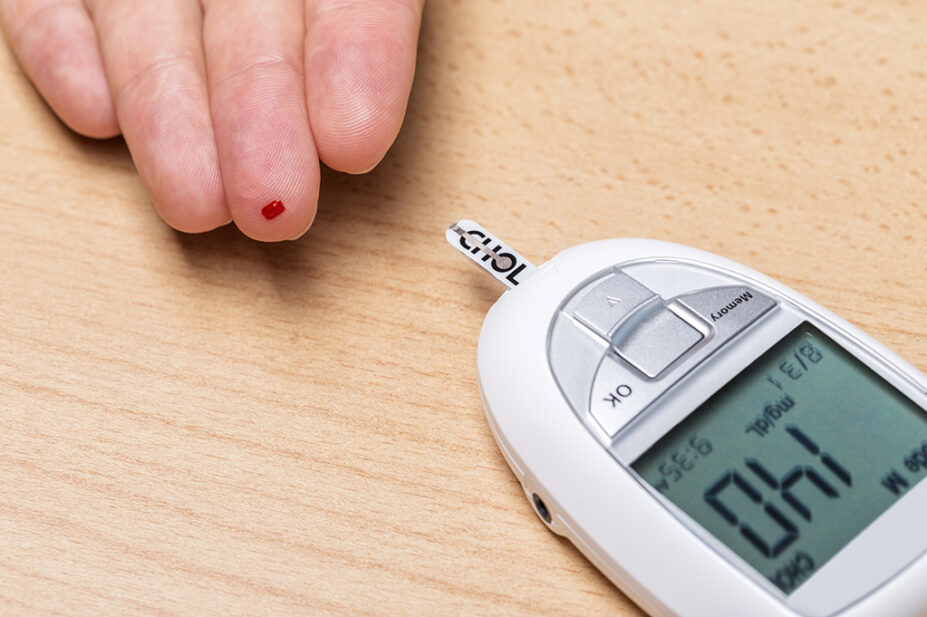
Shutterstock.com
Research has revealed that only two out of six point-of-care tests (POCTs) for cholesterol meet necessary standards for use in the NHS Health Check programme.
In a literature review, published in BMJ Open on 5 March 2025, researchers in diagnostic and technology evaluation from the National Institute for Health and Care Research’s HealthTech Research Centre examined studies on POCTs available in the UK for measuring blood lipids to determine whether they met accuracy specifications based on the 1995 US National Cholesterol Education Program (NCEP) recommendations.
Lead author Chikomborero Cynthia Mutepfa said the objective of the review was “to better inform clinicians and decision-makers in primary or community care settings on selecting the appropriate POCTs for screening purposes (as a part of the NHS Health Check programme)”.
The team searched medical research databases, Google Scholar and article reference lists for studies that compared POCTs with laboratory testing, or another POCT, performance for measuring at least total cholesterol (TC) and high-density lipoprotein cholesterol (HDL-C).
According to the paper, evidence was unevenly distributed across POCTs, with most of the included 22 studies focusing on three POCTs: Cholestech LDX (n=7), CardioChek PA (n=8) and Accutrend Plus (n=6).
POCTs from Cobas b101, Elemark and Afinion AS100 each had three or fewer published studies reporting on their performance.
The studies selected were conducted across the globe, including in the UK, United States and Australia, with participants mostly healthy volunteers recruited from secondary care and others recruited from clinics within primary or tertiary care.
The researchers compared the accuracy of the POCTs for TC, triglyceride (TG), HDL-C and low-density lipoprotein cholesterol (LDL-C) against the NCEP standards.
The results demonstrated “evidence of between and within-study heterogeneity” and “precision measures often showed systematic differences between the POCT and reference standards”, the paper said.
“Most devices, except for Elemark, met at least one NCEP standard for either TC, TG, HDL-C, or LDL-C”, it added.
The researchers concluded that evidence for only two of the devices — the Cholestech LDX and the Cobas b101 systems — “mostly met” the requirements of the NCEP standard of evidence for bias and precision and “could be recommended” for use in the NHS Health Check programme.
Commenting on the paper, Sotiris Antoniou, consultant pharmacist in cardiovascular medicine at Barts Health NHS Trust, told The Pharmaceutical Journal that community pharmacies should ensure their POCTs are certified by the Centers for Disease Control and Prevention’s cholesterol reference method laboratory network, as these are aligned with the NCEP guidelines.
“This is not only important but essential for POCTs in pharmacies to enable accurate clinical decisions as part of their role in providing front-line testing,” he added.
“The bottom line is that pharmacies are well placed to support the detection and management of long-term conditions and POCTs will be a valuable tool in supporting their role.”
Antoniou is lead investigator for a north east London initiative that evaluates the feasibility of POCTs in community pharmacies. In November 2024, the service was launched in community pharmacies across north east London, with a focus in areas of social deprivation.
Delivered in partnership with Barts Health NHS Trust, NHS North East London, North East London Local Pharmaceutical Committee, UCLPartners and Heart UK, as part of the east London prevention strategy, the rapid seven-minute lipid testing pilot service provides patients with a full lipid breakdown and calculates their risk of developing a heart attack or stroke over the next ten years.
The pilot uses the Afinion 2 POCT machine, alongside the HealthTab platform, which provides external quality assessments and connects results to the NHS app.
“We are conscious that POCT was introduced many years back in community pharmacy as part of the health checks, but due to the quality of the results was deemed not to be sustainable,” said Antoniou.
“As such, our group in north east London undertook a detailed review to assure the public and potential commissioners on the quality of the POCT, and whilst [the] Afinion 2 [test] was not included within the BMJ article, it has numerous studies comparing its quality.”


